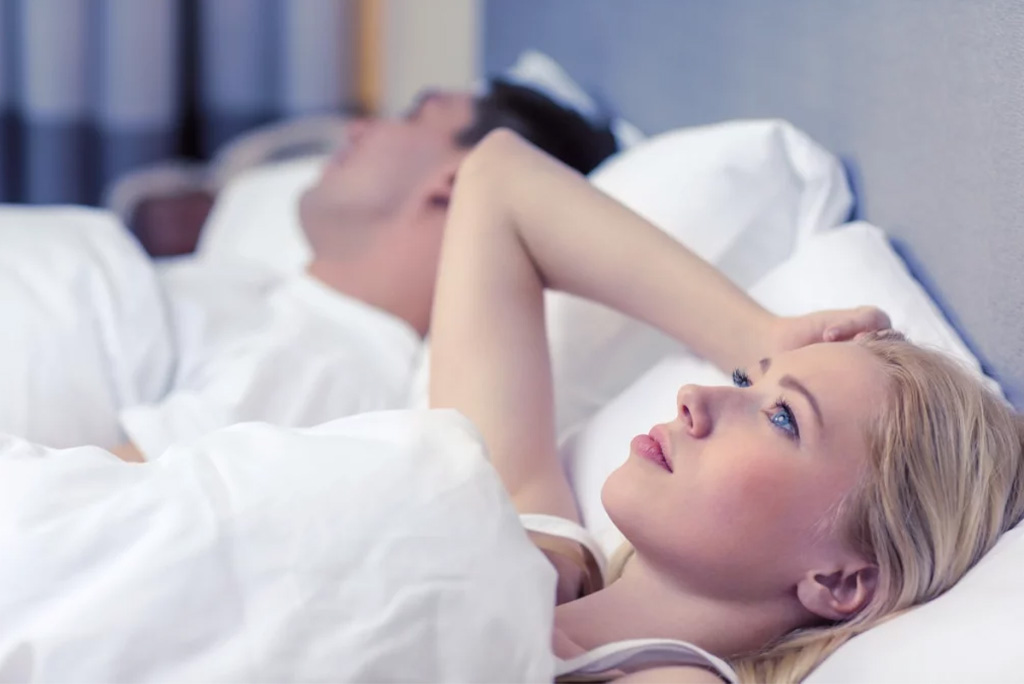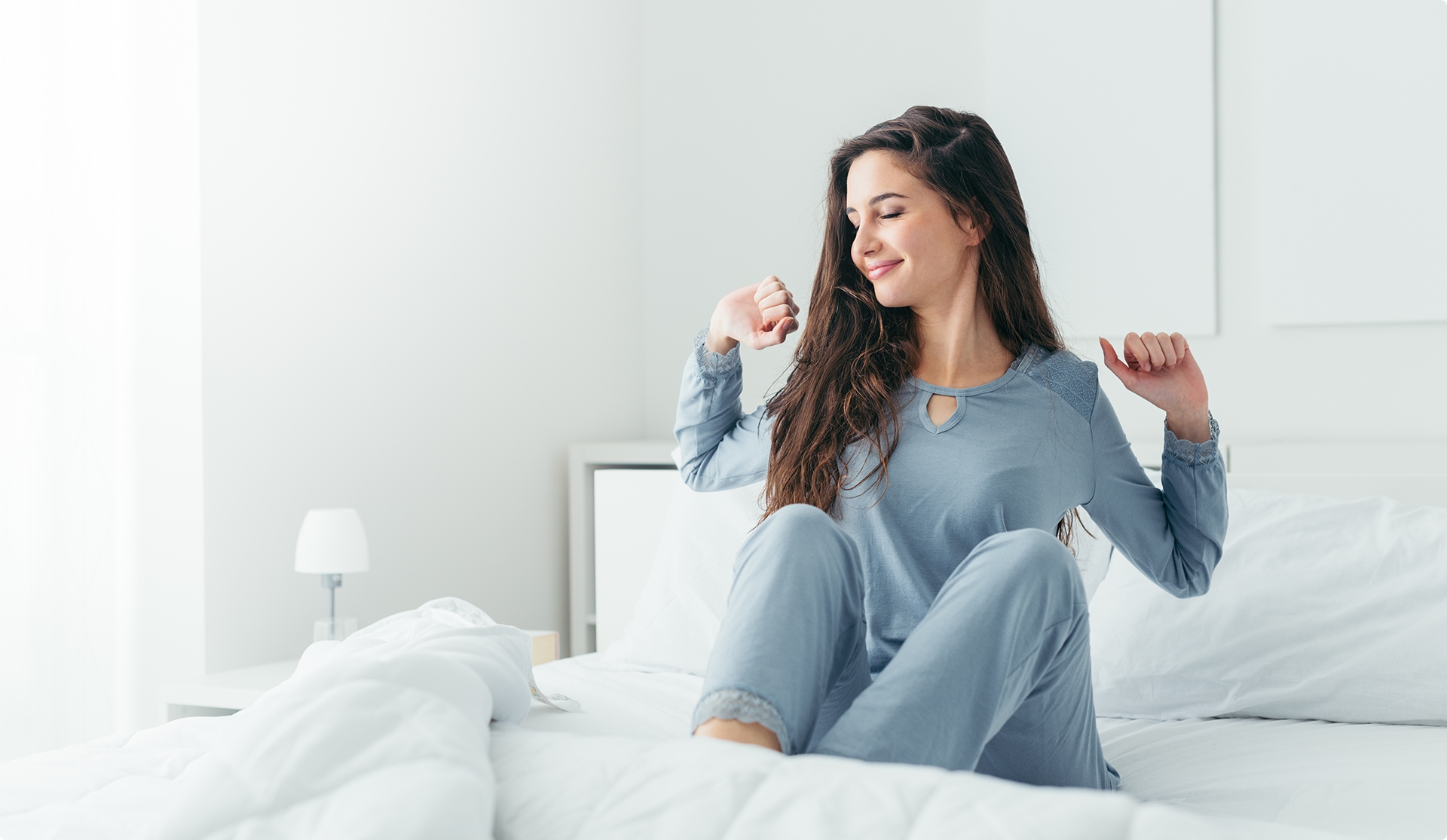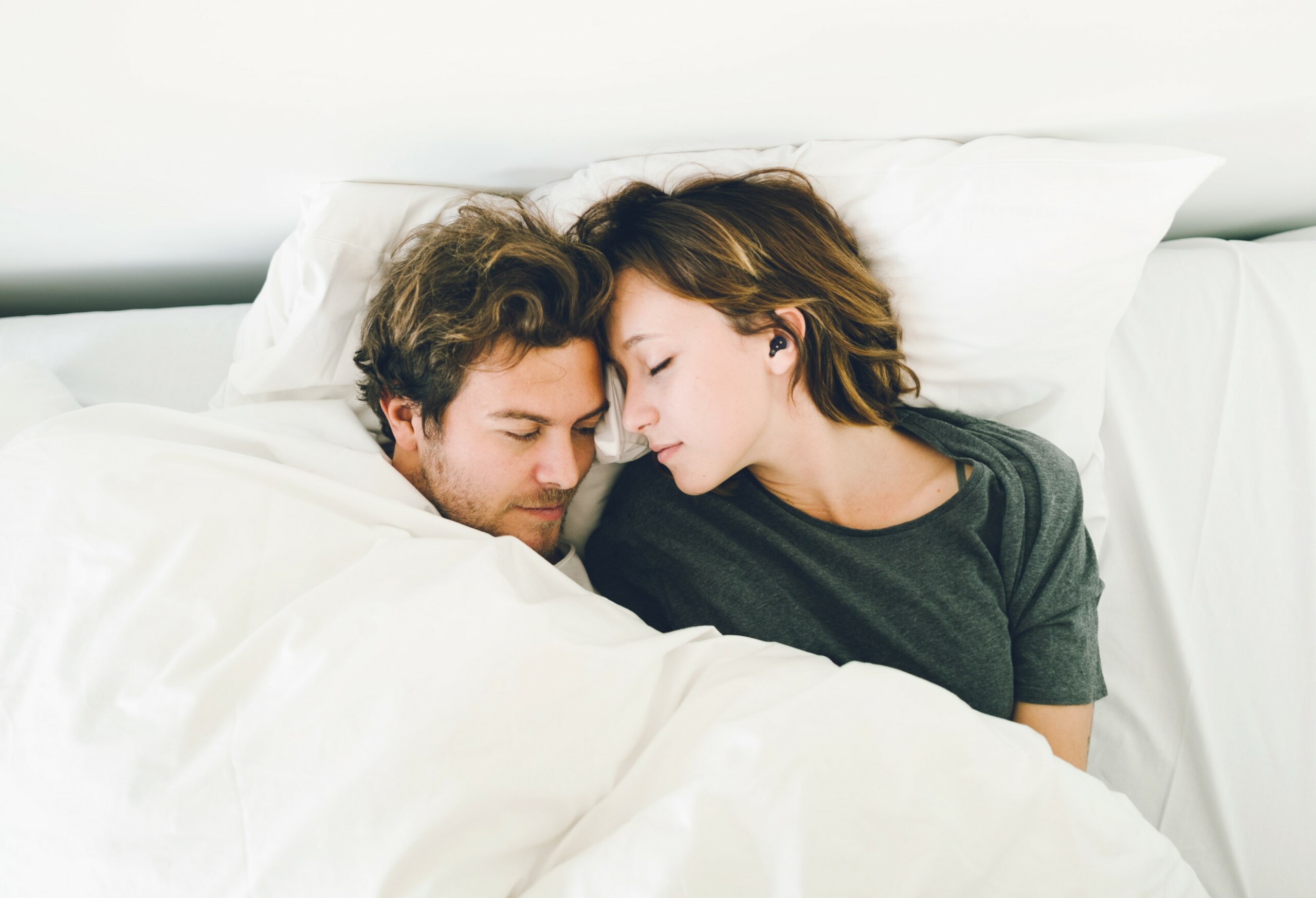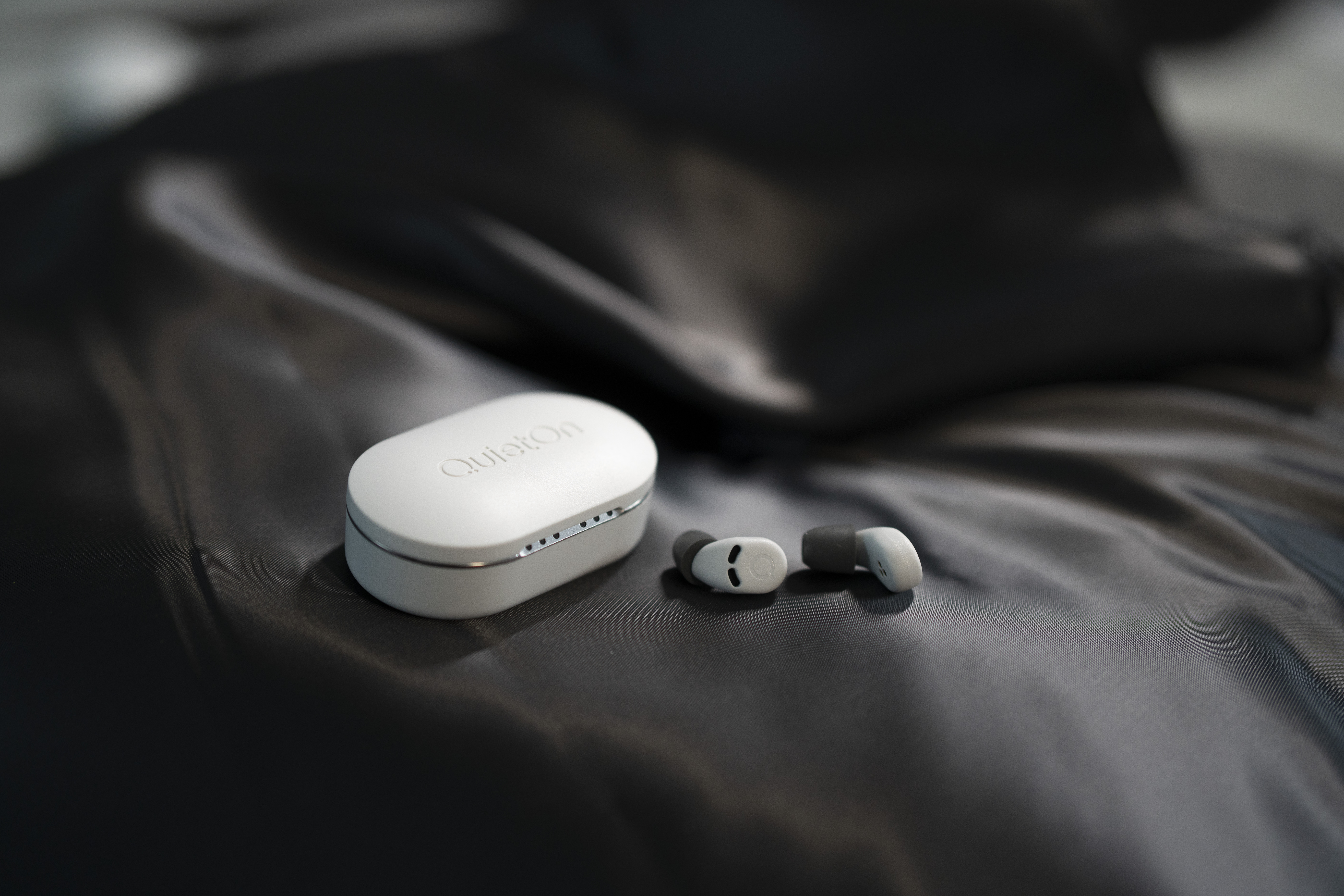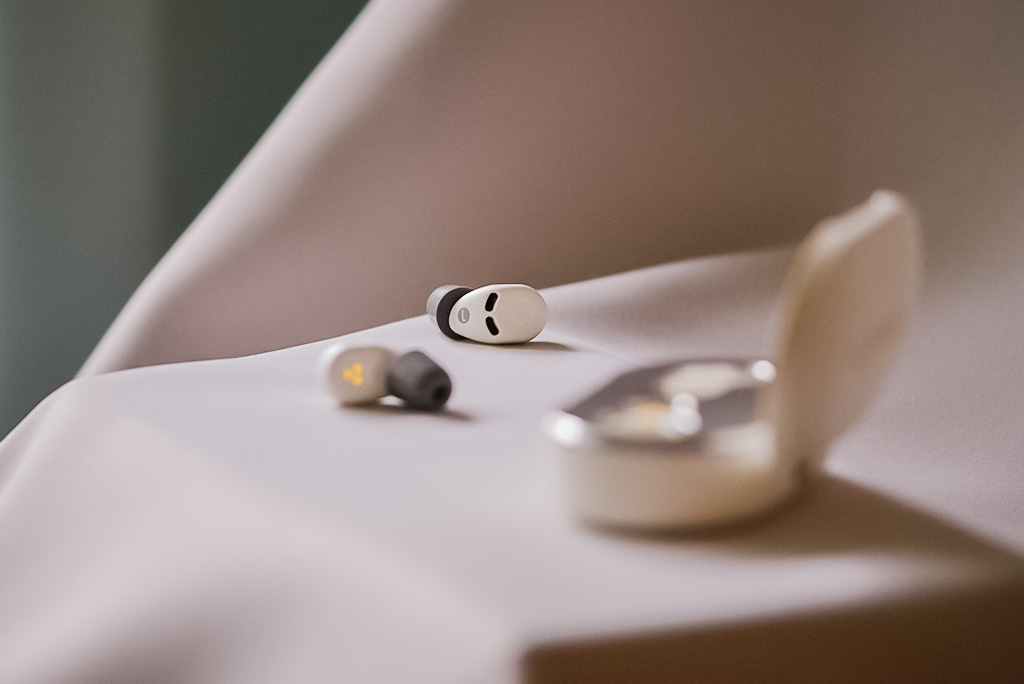Your cart is currently empty!
Sleep Peacefully
Quieton 3 – Sleep Peacefully Isn’t waking up well-rested and full of energy simply one of the best things imaginable? Feeling ready for the day and anything it might bring with it almost has no equal. Isn’t disturbed sleep accordingly one of the worst things possible? Especially if you’re already tired and stressed out. The…

Quieton 3 – Sleep Peacefully
Isn’t waking up well-rested and full of energy simply one of the best things imaginable? Feeling ready for the day and anything it might bring with it almost has no equal. Isn’t disturbed sleep accordingly one of the worst things possible? Especially if you’re already tired and stressed out. The number one factor for the well-being of us humans is sleep. But not just any kind of sleep – the key is in the quality and in the ability to sleep peacefully.
In this article we’ll look into the factors that affect peaceful sleep. Both in the sense of what kind of things might disturb it as well as advance it.

Restless? Here’s why
Earlier we’ve gone through in depth how to manage in a noisy environment. Sound disturbance, however, is only one of the many things that can disturb your sleep. Other things that might cause you to toss and turn instead of sleeping tight might be for example stress, anxiety or overstimulation. Here’s a quick walk-through on what kind of factors might cause you to sleep restlessly.
Stress takes a toll on your sleep
As we’ve addressed before, stress can have a significant negative effects on your health and overall well-being. Definitely not the least of these is its disruptive effect on both the ability to fall asleep as well as the sleep quality. Stress causes your system to stay in a fight or flight response mode which is naturally meant for states of emergency. Does a situation where you have to decide whether to have a fist fight or to run away seem calm enough to go to sleep? Also in this hypothesis, take too much time to decide and someone else might just put you to sleep for you…
Anxiety gets in the way
Anxiety is our body’s natural reaction to stress. It’s good to realize that feeling anxious every once in a while is completely normal. Fear or apprehension of what might be expected of a big life change or even some smaller challenge can take over anyone’s thoughts. However, if the feelings of anxiety begin to get extreme, have lasted longer than six months, and are a hindrance to normal life, one might be suffering from an anxiety disorder. Studies have clearly shown that for example somatic anxiety has a negative impact on sleep quality. Stress and anxiety can cause a vicious circle where experiencing these hindrances and thus sleeping poorly makes one even more prone to them.

Overstimulated or missing your mark?
The light’s blue wavelength that’s emitted from most electronic screen devices has a known disruptive effect on the sleep hormone melatonin. If the surroundings in which you’re trying to go to sleep, or the conditions of your sleep time, are restless it’s no wonder your sleep is restless as well. Noisy, well-lit, unclean or cluttered space is no space for good quality sleep.
Other factors to cause a pretty similar effect can be a poorly timed sleeping schedule or oversleeping before the regular bedtime. First of all, we have two separate sleep regulating systems (introduced more thoroughly in one of our previous articles) that need to be timed correctly. Basically, this means regularly going to bed when you feel naturally tired. Missing the mark means pretty much the same thing to your system as jet lag. Secondly as we’ve also explained earlier, daytime napping is a delicate business. Overdo it and you’re prone to have trouble falling asleep, as well as sleep poorly at night.
Under bombardment
As if the aforementioned wouldn’t be enough, that’s only some of the many ways to impair one’s sleep quality. Poor diet and not enough exercise just to mention a couple more. Of course, not all of them can be completely avoided by our own actions – especially many underlying medical conditions.
In today’s society we are also constantly bombarded with different notifications, alarms, lights and other sensory stimuli. Take a look at your life now and compare it to your childhood. Biking to your friend’s place to ask if they could come out and play, as well as waiting for the paper or evening news to hear what has happened, has changed into a bombardment of beeps, tweets and threads. Work-related information trickles through to our free time via possibly four to five different channels and to be a normal parent, you need to keep tabs with your child’s school via at least three.
According to Euromonitor International, approximately 40 % of global consumers feel like they are under constant pressure to get things done. Is it any wonder that only about 12 % of global respondents are not at all concerned about sleeping problems? At the same time almost as many people have extreme concerns. What could be done?
Remedies for more peaceful sleep
Although modern man has managed to create a barrage of sleep depriving challenges, the very same ingenuity has been, and is, hard at work creating ways to go around them.
Stress less, sleep more peacefully
As stress (or more favourably the lack of it) has a big impact on sleeping peacefully, addressing it in any way is a smart move for also advancing your sleep quality. This can take any form from focusing more on one’s favourite pastimes to active stress busting with meditation or breathing exercises. The important thing is to lower the stress levels, not to increase them by stressing out about your stress. For this you might find our listing of stress busters useful. When it comes to prolonged anxiety or any other mental problem that you feel powerless with, remember there’s no shame in seeking professional help.
Reorganize
Sometimes you might simply need a new bed and/or pillow. Another factor is the overall calmness and comfort of your bedroom. Sleeping peacefully might take nothing more than getting rid of excess stuff that’s creating clutter and disruptive sounds in your bedroom. If you’re having trouble relaxing in your bedroom, try to reorganize it.
Reorganize some more
Another way to look at things is reorganizing your head, so to speak. Often the key for making successful life changes is to go at them piece by piece – focusing on one habit at a time. If sleeping is your number one problem, you should probably make it your first priority as well and keep to it relentlessly. Go to bed so that you’re already in it when you start feeling naturally sleepy. Now do this pretty much the same time every night. Studies have shown that regularity is among the most important sleep affecting factors along its duration and quality. Possibly even the most important.
After finding ways to follow a regime, the next thing to do is to switch off electronic devices way before bedtime or at least utilize applications that eliminate their blue light. After this you can move to other habits, such as spending time outdoors, exercising and eating a balanced diet. As us humans are complex creatures with innumerable intertwined systems, so are our habits and their consequences. This way sometimes a good old-fashioned walk in the woods is all that’s needed to make you sleep more soundly. The catalyst of achieving better well-being can vary. The important thing is to make a change if such is needed.

Good habits that help you sleep peacefully:
- go to bed regularly at the same time every night
- spend more time outdoors
- do some physical exercise
- eat well and not too much
Sleep peacefully with QuietOn 3, the world’s smallest ANC device
The more traditional ways of achieving peaceful sleep only work if they have realistic chances of taking place. Often the biggest problems are the sleeping surroundings and conditions we can’t exactly help. One could, of course tell an urban person suffering from the noisy soundscape of a big city to move to the countryside. But is that really an option for everyone with this problem?
Half of global consumers is currently looking for a new treatment solution when it comes to their sleeping problems. This says something, doesn’t it?
QuietOn is dedicated for bringing out that solution – the QuietOn 3 Active Noise-Cancelling earbuds. ANC technology is especially effective against the low sound frequencies that form the background of urban lifestyle.
The surrounding hum of traffic and industry, the murmur of your roommates talking with each other or consuming entertainment, your spouse snoring next to you, etc. are all things for which something could be done. At the same time, you could put on the world’s smallest and extremely ergonomically comfortable ANC earbuds and pay no mind. Taking your mind off of things that make it run rounds, or making it able to concentrate on exactly nothing, might not take more than some simple peace and quiet.
Sleep peacefully and get all these benefits
As a positive outcome of sleeping more peacefully, you might tip the scales and turn the rotation of the aforementioned vicious circle the other way round. Why not make it into a positive spin wheel. Waking up better rested and with more energy, you are more resistant to the stressors of the day. Succeeding in more, and even in the little things that might be otherwise left undone to further increase your stress burden, create a sense of achievement. This in turn makes your body release so called happiness hormones. With a name like this, it’s not difficult to imagine, what their job is.
As sleep is the most important thing for our well-being, well-rested means healthy. It also means more focused and potent. While sleep deprivation is a growing epidemic and causing severe health problems in modern countries, wouldn’t you rather be someone who still possesses the prerequisites to not only cope but to succeed – and best of all, enjoy?
All this might just be possible with a tiny, comfortable next level Active Noise-Cancelling device.
References
https://blog.euromonitor.com/consumer-trends-in-health-and-nutrition-prioritising-sleep/
https://www.healthline.com/health/somatic-symptom-disorder
https://www.ncbi.nlm.nih.gov/pmc/articles/PMC6074813/
https://www.reuters.com/article/us-health-sleep-idUSKCN1M72F3
Related articles


